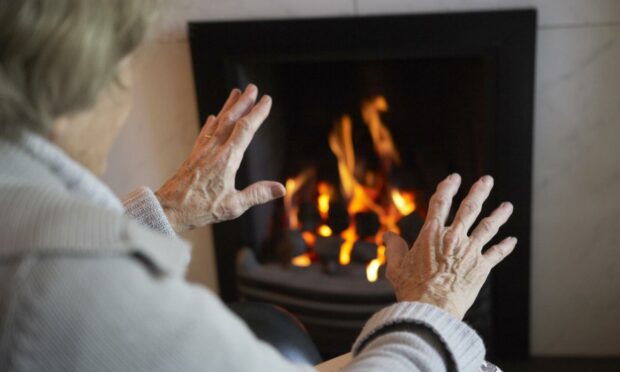The Scottish Government is “urgently considering” extra help for consumers being hit by soaring energy bills.
Finance Secretary Kate Forbes signalled ministers expected to be “announcing further measures soon”.
She highlighted the “horrendous mixture of pressures” faced by households across the country – particularly in northern Scotland.
Her remarks came as energy industry regulator Ofgem warned billpayers faced “significant rises” in energy prices next spring, with a cost cap to increase again due to soaring gas prices.
Fears have already been raised that northern Scotland will be the hardest hit area of the country this winter, having suffered the highest energy bills in Britain for many years.
Horrendous mixture
Speaking at an online fuel poverty summit on Friday, organised by the Sutherland Community Partnership, Ms Forbes said: “It is a horrendous situation to be in.
“A horrendous mixture of pressures, on top of what is already being faced by many in the Highlands and islands, because we know that there are already high levels of fuel poverty, and extreme fuel poverty, in far too many of Scotland’s rural, remote and island communities.”
The cost of energy is clearly a huge issue when it comes to tackling fuel poverty.
– Kate Forbes
Referring to the price cap increases, the Skye, Lochaber and Badenoch MSP said: “That is going to have, undeniably, a negative impact on fuel poor households.
“The cost of energy is clearly a huge issue when it comes to tackling fuel poverty, and it is one of those drivers I referenced over which we have the least control, with policy in this area still reserved.
“The impact of the current energy price increases would be lessened if we weren’t at the same time seeing incomes being squeezed, tax rises and benefits cut, especially when it comes to the £20 a week cut in Universal Credit, which we know will be devastating for many of the households most vulnerable to fuel poverty.”
While calling for action from the UK Government, the finance secretary also said: “We know and we take it seriously – the Scottish Government have a responsibility, and has the ability, to tackle some of the drivers of fuel poverty.”
She described a “wide range of actions” being taken to support people, but said: “I think it is impossible to assume that those interventions will fully mitigate the costs of decisions taken by the UK Government, in particular.
‘Putting money in people’s pockets’
“When it comes down to it, and I saw this during the pandemic in particular, it’s putting money in people’s pockets to be able to deal with rising costs that ultimately matters.”
She highlighted a £130 pandemic payment to people in receipt of council tax reduction, as well as extending child winter heating assistance to reach 5,00o additional families, and replacing cold weather payments with new guaranteed offer to low income families.
And she added: “We are urgently considering what other support can be provided this winter for those facing fuel insecurity, and expect to be announcing further measures soon.”
We are urgently considering what other support can be provided this winter for those facing fuel insecurity, and expect to be announcing further measures soon.
Kate Forbes
The summit had heard earlier on Friday from Di Alexander, chairman of the Highlands and Islands Housing Associations Affordable Warmth group, who warned of a “bleak” outlook for people already suffering from fuel poverty and now facing huge price rises.
“We need a genuinely new dynamic, and genuinely collaborative and mutually supportive approach between governments, both governments, and locally-trusted organisations,” he said on efforts to alleviate fuel poverty.
‘More people on the ground’
“We need more people on the ground, in the communities where the problems are being felt and experienced to their most acute extent.
“Luckily we do have the Scottish Government’s new fuel poverty strategy coming up, which will be unveiled at the end of this year. We place a lot of hope in that.”
Ms Forbes, who admitted that she had found it “quite challenging” when searching recently for more renewable ways to heat her new home, agreed with Mr Alexander.
“I think it does require a multi-agency approach, with governments at every level working together,” she said.
“The scale of the problem is too big to be resolved by legislation alone, or by any particular organisation, body or government.
“And it does need to be, to use that well worn phrase, a multi-faceted approach, to try and reach people where they are at right now, and provide the right kind of help to support them.”

